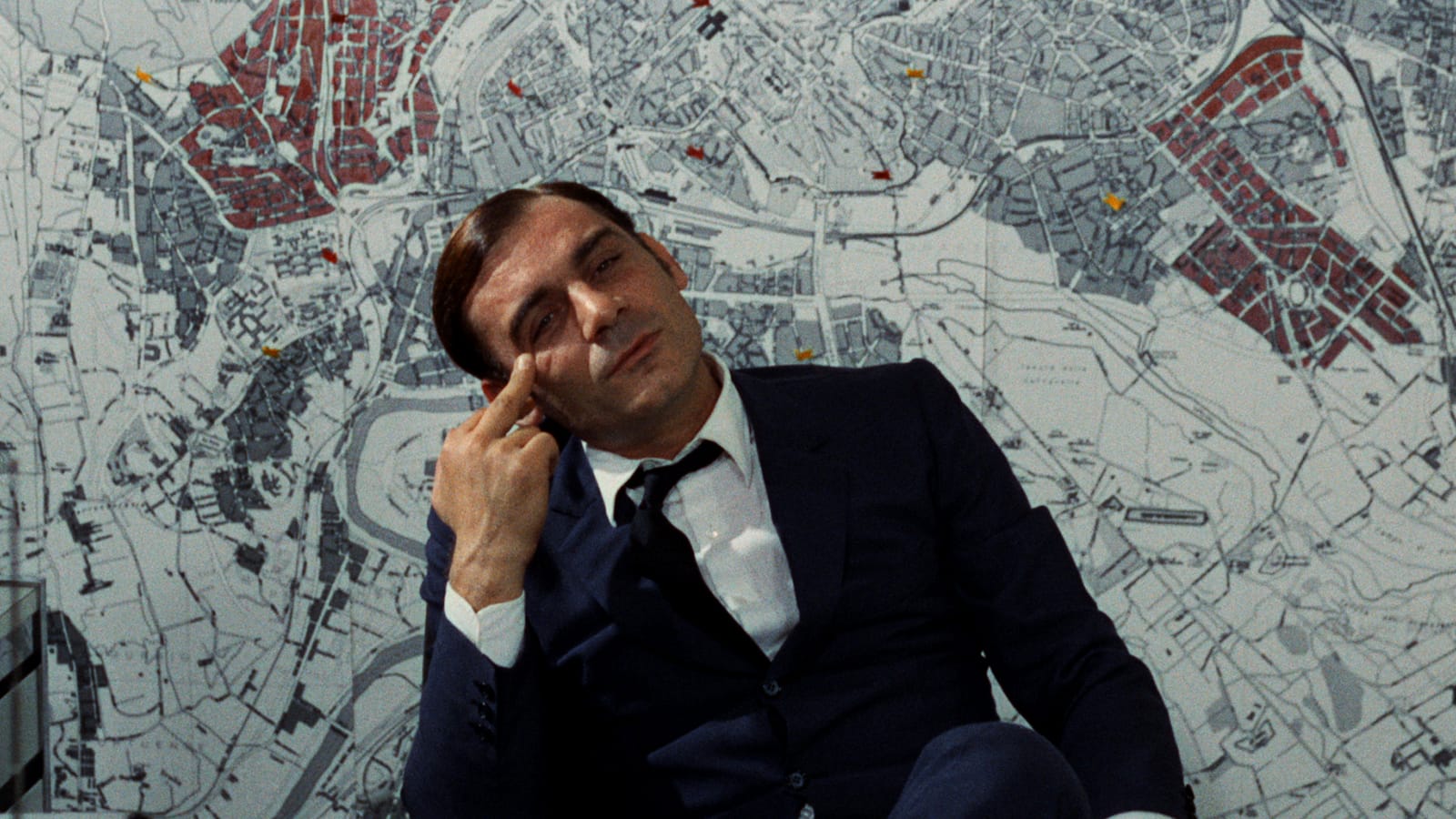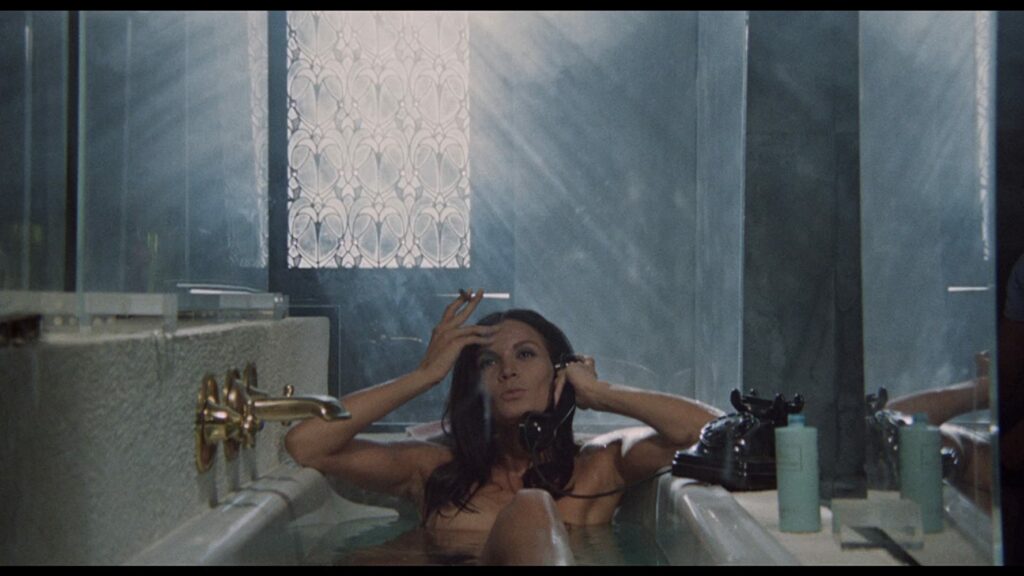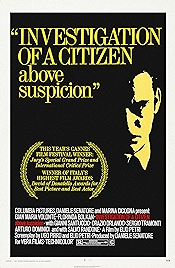The twang of a jew’s harp is the first sound you hear in 1970’s Investigation of a Citizen above Suspicion. “BOING,” it goes, slightly ridiculously, the soundtrack of Ennio Morricone (who else?) instantly setting the tone for the entire film, an uneasy mix of the absurd and the satirical.
Meanwhile, on screen, a handsome man’s man (Gian Maria Volontè) in a smart cream suit is arriving at the apartment of a beautiful woman (Florinda Bolkan) who is clad in a kaftan and little else. “How are you going to kill me this time?” she purrs. Clearly this “killing” is all part of some sex game they play, he the killer, she the victim.
This time, though, it’s different. He does actually kill her, then calmly has a shower, leaving bloody footprints through the apartment, before lifting two magnums of champagne out of the victim’s fridge and heading off to the police station, where the killer turns out to be the head of homicide on his last day before being promoted to a new job. The farewell drinks he’s pouring for the team he’ll be leaving behind are evidence, though they don’t know that.
It’s a good joke. Or it probably was in 1970 when writer/director Elio Petri debuted his latest attempt to yoke a political viewpoint to populist film-making. 50something years on we can see this punchline – of course this lazy killer is a cop – coming miles away. He’s a cop. He’s a killer. He’s a killer-cop. It’s now a standard trope.
Even so, there’s still the puzzle to solve. What is this guy Dottore up to? As the investigation into the woman’s death continues, Dottore appears to be doing everything in his power to get caught. He tries to plant, or unplant, evidence, places himself at the scene of the crime and brazenly lays himself open to being identified by witnesses when there’s no need to do so. None of this necessary – since his promotion, Dottore is out of harm’s way as head of the police’s political unit.
Petri scatters clues out on the streets, where the unrest of 1968 is mutating into what would become the Red Brigade terrorism of the 1970s. In a rousing speech to his new colleagues, Dottore makes his feelings clear – the people on the streets have too much freedom, he opines, “Our duty is to repress them – repression is civilisation.”
A classic “hiding in plain sight” thriller is what’s on offer. As quickly as Dottore’s old unit turn up evidence of their old boss’s presence at the scene of the crime, they discount it. Because… well, it couldn’t be. More problematically, Petri tries to link Dottore’s machinations with the unrest on the streets by using broad sweep satire. If you’ve seen The Tenth Victim or any of Petri’s other films of this period, you’ll know that this is how he operates. But his satire is heavy handed and also looks suspiciously like a a bid to cover up plot inconsistencies.
The story doesn’t stack up, in other words.
Volontè is great though, as a man having a masculinity crisis long before the term was fashionable, granite jawed, sweaty, ramrod, bullish, a ball of testosterone under threat – this film is the first of Petri’s Trilogy of Neurosis (The Working Class Goes to Heaven and Property Is No Longer a Theft would follow in 1971 and 1973).
Other pluses include Bolkan, who gets plenty to do in flashbacks where it becomes clear that she and the cop used to get their kicks by re-enacting celebrated murders of the day. She was always the victim.
And of course Morricone’s great score, which entirely captures the wackadoodle tone and lifts the whole film whenever it pops up.
Petri had been trying to have a critical and popular hit for quite a while and this spin of the wheel did it for him. The box office was good, the reviews generally praised the film’s least successful aspect – the satirical stuff – and the Oscar for Best Foreign Language Film was soon winging Petri’s way.
There have remakes mooted down the years. Either Christopher Walken or Al Pacino was meant to star in one, which Paul Schrader was meant to write and Andrei Konchalovaksy was meant to direct. Later, Jodie Foster tried to get a remake off the ground with Sidney Lumet directing. Neither came to anything.
While Investigation of a Citizen above Suspicion isn’t perfect and doesn’t quite dovetail together, Petri would probably argue that it’s not meant to. He’s aiming at bottling the political essence of the day. He doesn’t quite manage that either. However, what he does do is create a prototype of the 1970s political thriller. Quite possibly without realising it. Which makes this strange film even more interesting.
Investigation of a Citizen above Suspicion – Watch it/buy it at Amazon
I am an Amazon affiliate


